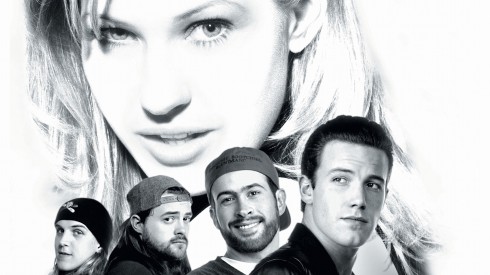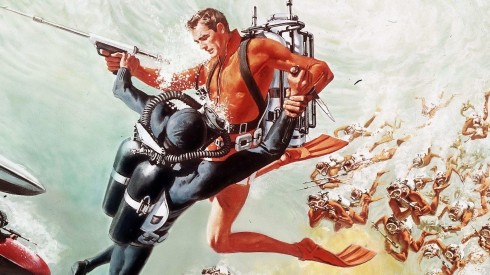
Written by: Brandon Sanderson
Published by: Tor Books
ISBN: 978-0-7653-1688-2
Genre: Fantasy
Warning: This is a review of the second book in a trilogy. Therefore, it must be said that it may contain spoilers for the first book in that trilogy. I apologize if this is inconvenient.
George R. R. Martin ruined fantasy for me, I think. These days, when I’m reading a book that’s so eager to win me over to whatever world of intrigue it has promised on the cover sleeve, I yearn for a gritty realism where character actions matter and political infighting presents real and prevailing danger at all times–that whatever threat that threatens the realm puts something I care about at stake. A Song of Ice and Fire, for whatever faults it has regarding its overemphasis on descriptions of food and set pieces, at the very least feels appropriately vast. As that series continues to grow, its vastness increases (Dorne a notable exception of course that might actually turn out promising), and it all feels very important and absorbing. And the things that happen to the various well-developed characters feel natural and less forced, regardless of how absurd the premise feels after thinking about it for two minutes.
Basically what I’m trying to say is that it is becoming more difficult for me to buy this Hero With a Thousand Faces template. I’m not necessarily one to embrace sophistication–I’ve tried reading In Search of Lost Time a couple times and couldn’t do it–but I’m saying that the tried and true themes of the Hero’s Journey just don’t resonate with me as much as they used to. I question whether or not I’m qualified to write a response to this sort of thing. I’m not much of a professional. But it’s how I feel at any rate. So off we go.
The Well of Ascension is the second book in the Mistborn trilogy written by Brandon Sanderson. It picks up roughly one year after the end of The Final Empire. Elend Venture is now the monarch presiding over the Central Dominance, which consists primarily of its capital city of Luthadel. The survivors of the Kelsier’s crew, all responsible in one way or another for overthrowing the godking known simply as the Lord Ruler, have all taken jobs that involve the court. Elend’s focus is one that is less austere, willing the power he’s usurped to be transferred to the people and particularly the peasant population known as the skaa. Naturally, the upperclassmen don’t like this at all and are constantly scheming to oust him from the court. Complicating things further still is the looming threat of Elend’s father who has amassed his own army to march on the city, and still two more armies that threaten his hard-won victory as well.
The theme of this novel is one where an empire torn to pieces after its Lord Ruler’s displacement is reunited under the guise of a new peace. It serves as a decent analysis of what happens to power when powerful people are deposed or cast aside. It is a novel that is very eager to please: it truly wants you to feel that Luthadel is an important city and that the world would fall apart without Elend or Vin (of whom we’ll get to shortly) involved in every little political nuance, and is trying so hard to entertain. Politics is interesting I guess, you know, when they’re done right. My big problem rests with Luthadel being the big focus of this second, darker entry in the Hero’s Journey. We don’t venture outside of its walls very often and ultimately don’t really have an understanding of how important this city is in spite of its convenient central location in the heart of the former Final Empire. Why does Elend’s kingship matter? Why is maintaining Luthadel’s position as the dominant force that drives this new empire important? The world of Mistborn is hinted at being extremely large, suggested by the very well done lore that is the product of 1000 years of oppression by an immortal godking. Why are we still stuck here playing this stupid game and not out adventuring so we may better understand why exactly the world needs Luthadel at all? I’m sure it’s possible to infer a thing or two about why, but I couldn’t be bothered to. The book asks us instead to care about the primary characters that were set up in Kelsier’s crew during the first novel and limits their abilities to do much of anything with the world at large thanks to political theater and enemies at the gates. Yawn.
So if the politics is a total flatline (it is) then what of the characters that drive the narrative of this story? Well…
…they’re okay, I guess. All the characters you’ve grown to love from the first book are back. Even Kelsier gets a starring role as ‘that guy we like to talk about because he was always smiling even when he was raging inside.’ There’s Vin, there’s Elend, there’s OreSeur, there’s… um… Ham… there’s… guy? And guy? And guy? And some other guy? There are new characters as well! Like Zane, the angsty teenage Mistborn man that serves as an effective foil to Vin, the angsty teenage Mistborn woman. And whats-his-face. He’s there, too. And everyone smiles more often than they realistically should. You know what, whatever. Let’s talk about Elend and Vin.
For the most part, the Mistborn series is more reliant on its action setpieces than for any deeper purpose it might try to postulate. The character of Vin is clearly the action girl here, and also the heroine. She is set up in the first novel as a street urchin that comes to the revelation that her magical abilities surpass many of the other Mistborn known at the time. Streetwise, paranoid, and angsty, she stays up nearly all hours to protect the far weaker, not-Mistborn-at-all Elend because she loves him I guess. She engages in these huge fights with tons of assassins that serve to display just how powerful she is, ostensibly to hold the audience in thrall as well because here is this creature that could do so much with her power and blah blah blah. She feels obligated to protect everyone and that’s fine. But there is also something Mary Sueish about her, where it seems that we are always relying on Vin and Vin only to keep Luthadel safe. Most action scenes where anything is at stake whatsoever is ended after a time simply because Vin swoops in at the last moment to save the day. She rarely makes any mistakes, and when she does she isn’t held accountable for them at all. No, Vin is young and perfect. Yawn.
Elend Venture is slightly different. Political theatre aside, this guy actually gets something of an arc. Whereas everyone else kind of keeps doing their thing, Elend has the biggest opportunity to grow and my argument is that Elend’s arc saves The Well of Ascension from crap-fantasy purgatory. Here is a guy that is timid and weak, a philosopher who is fundamentally useless, and a king in name only. But he gets more interesting as time goes by because he starts to learn what it is that makes kings great and he shirks his soft, philosophical side to become more of a hardened, altruistic king that doesn’t hide under his bed at the slightest bit of danger. It’s fun to see him evolve into a person that doesn’t need a Mary Sue around constantly to protect him, and surely by the end of this book in particular he does become more of a man that can defend his own interests, a real king actually. That is nice to see when everyone else is just kind of meh. I’m more excited to see what becomes of him in the next book than I am of anything else, because suddenly this guy is important and certainly conflicted genuinely about who or what he is.
You may think by now that I don’t like the Mistborn series all that much. The truth is that I don’t necessarily hate it. I think it could be better. There are really cool action set pieces and the magic is performed in an interesting way, although again the Allomancy system seems heavily inspired by video game RPG mechanics (be sure to watch your magic meter!). It’s a crutch, though. Action can never be resolved without involving some Allomantic trickery in this series and the softness of the writing and the disregard of feelings for these characters makes it a little more difficult to stay invested in anything that happens. No, where Mistborn truly shines is within its mythologies, of why there are Steel Inquisitors, where the mysterious mists came from, what led the Lord Ruler to become a thing, and most interestingly this whole race of creatures that can assume the forms of other living things completely that are presumably born from the mists. The characters we’re spending time with to uncover the nature of this strange fantasy world just aren’t up to par with the rest of the world itself and generally aren’t able to carry the series in my opinion, but at the very least it’s compelling enough to stick with it, since Sanderson dispenses the lore at regular intervals, indicating that the world is vast and storied and interesting. It’s just too bad that we only get to see just a sliver of what makes the world of Mistborn so neat, and we get to stay locked up in a single city for the whole duration.
B-






